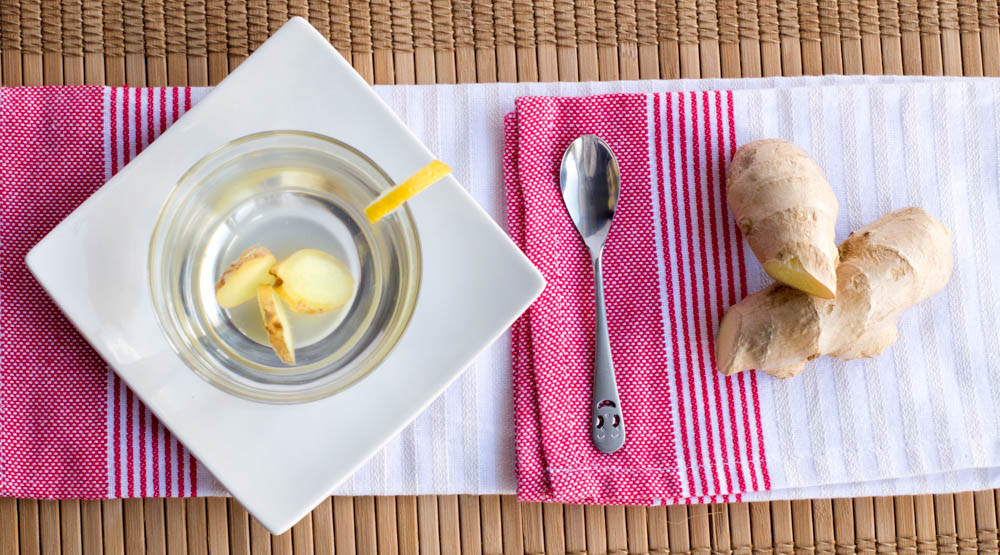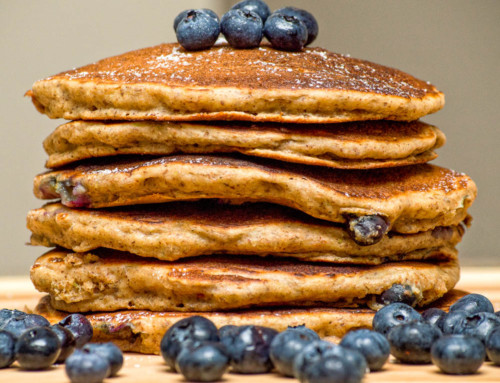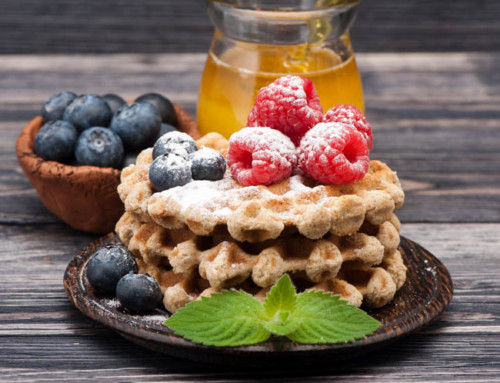Ginger is an herb that has been consumed for centuries as Chinese, Ayurvedic, and Unani-Tibb medicines for correcting various ailments.
Modern science also notes ginger helps prevent cancers, cold/flu, diabetes, high blood pressure, high cholestrol, Alzheimer, immune system weakness and inflammation. It has been shown to have high phytochemical composition and physiological benefits such as anticancer, anti-inflammatory, antioxidant, and cardio-protective properties.
Interestingly, in recent years the demand for ginger has been growing in North America, not only for the use as a food ingredient, but also for it’s health benefits. Ginger is often consumed in two main forms either fresh or dried.
- Fresh Ginger—the pungency of fresh ginger is primarily due to the gingerols which are a homologous series of phenolic compounds (commonly known as phytochemicals).
- Dried Ginger—the pungency is mainly due to presence of shoaols, mainly 6-shogaol and 6-gingerol.
Many Benefits of Ginger
Improves Cognitive abilities—cognitive function impairments with age are often related to oxidative stress (cell damage). This is quite prevalent in middle aged women. In a study, sixty healthy middle aged women, were given ginger extract (placebo, or plant extract doses once daily for 2 months). Conclusions made include both attention and cognitive processing capabilities were improved in women that took ginger, with no side effects reported.
Antibiotic/antimicrobial properties—ginger extracts have been shown in vitro (test tube) to kill various bacteria, on a dose dependent bases (more extract kills more bacteria). Interesting note is the effect ginger extract has on Staphylococcus bacteria (the culprit in skin and respiratory infections [sinusitis] as well as food poisoning), the results are comparable to the use of conventional antibiotics. Implication being ginger has a similar effect on bacteria as does an antibiotic, minus the damaging side effects.
High antioxidant properties contribute to both radical scavenging and inhibitory effects. Simply put, certain compounds found in ginger have been shown to find and kill free radicals (cell damage causing agents).
Hyperglycemic properties (anti-diabetic effect)—ginger alleviates (80%-97%) the signs of metabolic syndrome though a variety of mechanisms. This has been confirmed in vitro (test tube) and in vivo (lab animals). Furthermore, human trials done on diabetic individuals provide positive results including significant reduction in blood glucose, total cholesterol, triglycerides, LD-C, and VLDL-C levels.
Anti-inflammatory properties—In vitro studies and several animal trials provide evidence that ginger has the capacity to ameliorate symptoms of inflammation-associated conditions such as arthritis.
Daily Dose of Ginger
Ginger has a pungent and strong flavour that some may even find “spicy”. The easiest way to add ginger to you daily routine is add to a hot beverage. Below are some ways to get your daily dose of ginger:
- Grate some fresh ginger in hot water, a squeeze of lemon and drop of local honey.
- We love to add fresh ginger to a cup of warm Indian Masala Chai (find recipe in linked post).
- Ginger turmeric tonic — double the health benefits.
- Fermented ginger — great option as you also get health benefits of good bacteria that does wonders for the gut and immunity. Fermented ginger can be enjoyed as a condiment to a variety of dishes. Fermented ginger ale is another delicious opinion — we haven’t experimented with fermenting yet but, there are some great recipes you can google 🙂
Ginger Pitfalls
- Flavoured Ginger teas/beverages — be sure to select a tea or drink that uses real ginger and not added flavours. Many ginger teas on the market use added flavours to provide taste and fragrance but fail to provide the real ingredient and hence health benefits.
- Avoid heavily processed ginger in way of candied ginger. Many of us are over saturated with abundance of sugar, adding some to a health product defeats the purpose of the superfood.
- Choose fermented ginger over pickled. The opposite of candied ginger, pickled foods are high in salt that many of us over consume daily.
Final Thoughts
Ginger is a superfood that has been used in Asia for centuries for it’s medicinal properties and now, it’s finally making its way to Western cuisine and healthy lifestyle.
Ginger can be enjoyed dried and freshly grated to maximize on the health benefits. Dry ginger is very high in phyochemicals. Phyochemicals are a new emerging area of research and linked to assisting with various health related issues. A good quality tea with dried ginger (Arise Chai) is an easy everyday option to get your daily dose. If you have the time, adding fresh ginger to a hot beverage daily is an equally quick and easy way to get your daily dose.
What is your favourite way to enjoy ginger?
References
Gunathilake et al. Recent perspectives on the medicinal potential of ginger. Botanics: Targets and Therapy. 2015. https://www.researchgate.net/publication/283044052_Recent_perspectives_on_the_medicinal_potential_of_ginger
Ray et al. 6-Shogaol Inhibits Breast Cancer Cells and Stem Cell-Like Spheroids by Modulation of Notch Signaling Pathway and Induction of Autophagic Cell Death. PLOS ONE. 2015. http://journals.plos.org/plosone/article?id=10.1371/journal.pone.0137614
ORAC Values for measuring Phytochemicals: http://www.phytochemicals.info/list-orac-values.php
Saenghong et a. Zingiber officinale Improves Cognitive Function of the Middle-Aged Healthy Women. Evidence Based Complement Alternative Medicine. 2012. https://www.ncbi.nlm.nih.gov/pmc/articles/PMC3253463/
We hoped you enjoyed this article, if so, please share it on your favourite social media so, we can get on google’s radar. Fell free to leave us a comment and start a discussion on the topic.
If you are looking to build strong, lean and beautiful shoulders be sure to check out our training books:






